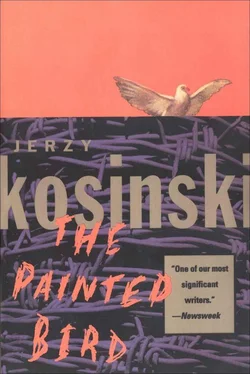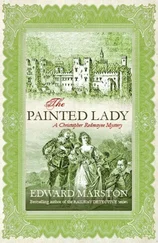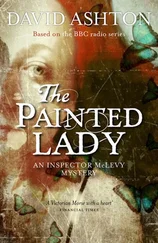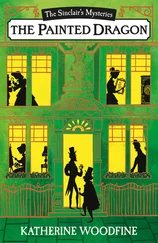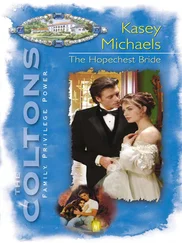Jerzy Kosiński - The Painted Bird
Здесь есть возможность читать онлайн «Jerzy Kosiński - The Painted Bird» весь текст электронной книги совершенно бесплатно (целиком полную версию без сокращений). В некоторых случаях можно слушать аудио, скачать через торрент в формате fb2 и присутствует краткое содержание. Год выпуска: 1965, ISBN: 1965, Жанр: Детская проза, на английском языке. Описание произведения, (предисловие) а так же отзывы посетителей доступны на портале библиотеки ЛибКат.
- Название:The Painted Bird
- Автор:
- Жанр:
- Год:1965
- ISBN:978-0-8021-9575-3
- Рейтинг книги:4 / 5. Голосов: 1
-
Избранное:Добавить в избранное
- Отзывы:
-
Ваша оценка:
- 80
- 1
- 2
- 3
- 4
- 5
The Painted Bird: краткое содержание, описание и аннотация
Предлагаем к чтению аннотацию, описание, краткое содержание или предисловие (зависит от того, что написал сам автор книги «The Painted Bird»). Если вы не нашли необходимую информацию о книге — напишите в комментариях, мы постараемся отыскать её.
The Painted Bird — читать онлайн бесплатно полную книгу (весь текст) целиком
Ниже представлен текст книги, разбитый по страницам. Система сохранения места последней прочитанной страницы, позволяет с удобством читать онлайн бесплатно книгу «The Painted Bird», без необходимости каждый раз заново искать на чём Вы остановились. Поставьте закладку, и сможете в любой момент перейти на страницу, на которой закончили чтение.
Интервал:
Закладка:
Sometimes days passed and Stupid Ludmila did not appear in the forest. Lekh would become possessed by a silent rage. He would stare solemnly at the birds in the cages, mumbling something to himself. Finally, after prolonged scrutiny, he would choose the strongest bird, tie it to his wrist, and prepare stinking paints of different colors which he mixed together from the most varied components. When the colors satisfied him, Lekh would turn the bird over and paint its wings, head, and breast in rainbow hues until it became more dappled and vivid than a bouquet of wildflowers.
Then we would go into the thick of the forest. There Lekh took out the painted bird and ordered me to hold it in my hand and squeeze it lightly. The bird would begin to twitter and attract a flock of the same species which would fly nervously over our heads. Our prisoner, hearing them, strained toward them, warbling more loudly, its little heart, locked in its freshly painted breast, beating violently.
When a sufficient number of birds gathered above our heads, Lekh would give me a sign to release the prisoner. It would soar, happy and free, a spot of rainbow against the backdrop of clouds, and then plunge into the waiting brown flock. For an instant the birds were confounded. The painted bird circled from one end of the flock to the other, vainly trying to convince its kin that it was one of them. But, dazzled by its brilliant colors, they flew around it unconvinced. The painted bird would be forced farther and farther away as it zealously tried to enter the ranks of the flock. We saw soon afterwards how one bird after another would peel off in a fierce attack. Shortly the many-hued shape lost its place in the sky and dropped to the ground. When we finally found the painted bird it was usually dead. Lekh keenly examined the number of blows which the bird had received. Blood seeped through its colored wings, diluting the paint and soiling Lekh’s hands.
Stupid Ludmila did not return. Lekh, sulking and glum, removed one bird after another from the cages, painted them in still gaudier colors, and released them into the air to be killed by their kin. One day he trapped a large raven, whose wings he painted red, the breast green, and the tail blue. When a flock of ravens appeared over our hut, Lekh freed the painted bird. As soon as it joined the flock a desperate battle began. The changeling was attacked from all sides. Black, red, green, blue feathers began to drop at our feet. The ravens flew amuck in the skies, and suddenly the painted raven plummeted to the fresh-plowed soil. It was still alive, opening its beak and vainly trying to move its wings. Its eyes had been pecked out, and fresh blood streamed over its painted feathers. It made yet another attempt to flutter up from the sticky earth, but its strength was gone.
Lekh grew thin and stayed in the hut more often, swigging homemade vodka and singing songs about Ludmila. At times he would sit astride his bed, leaning over the dirt floor, and drawing something with a long stick. Gradually the outline became clear: it was the figure of a full-breasted, long-haired woman.
When there were no more birds to be painted, Lekh began to roam the fields with a bottle of vodka sticking out from under his jacket. Sometimes as I rambled along nearby, afraid that something might happen to him in the swamps, I would hear him singing. The man’s deep, sorrowful voice rose and spread grief over the bogs like a heavy winter fog. The song soared along with the flocks of migrating birds but grew remote as it reached the abysmal depths of the forests.
In the villages people laughed at Lekh. They said that Stupid Ludmila had cast a spell over him and put fire in his loins, a fire that would drive him insane. Lekh protested, hurling the most vile curses at them and threatening to send birds against them that would peck out their eyes. Once he rushed at me and struck me in the face. He shouted that my presence scared his woman off because she was afraid of my Gypsy eyes. For the next two days he lay ill. When he arose he packed his knapsack, took along a loaf of bread, and went into the forest, ordering me to keep setting new snares and catching new birds.
Weeks passed. The traps that I set according to Lekh’s orders more often than not caught only the tenuous, filmy gauze of cobwebs that drifted in the air. The storks and swallows had flown away. The forest was becoming deserted; only the snakes and lizards increased in numbers. The birds perched in their cages puffed up, their wings graying and still.
Then came an overcast day. Clouds of barely discernible shapes screened the skies like a thick feather bed, hiding the anemic sun. The wind whipped over the fields, wilting the blades of grass. The huts, cowering against the earth, were surrounded by vacant stubble, blackened and brown with mildew. In the undergrowth, where careless birds once thrashed, the wind ruthlessly scourged and sheared the gray shagginess of the tall thistles and shifted the rotting stalks of potato plants from place to place.
Suddenly Stupid Ludmila appeared, leading her huge dog on a rope. Her behavior was odd. She kept asking about Lekh; and when I told her that he had left many days ago and that I did not know where he was, she alternately sobbed and laughed, walking from one corner of the cabin to another, watched by the dog and the birds. She noticed Lekh’s old cap, pressed it against her cheeks and burst into tears. Then she abruptly threw the cap on the floor and trampled it with her feet. She found a bottle of vodka which Lekh had left under the bed. She drained it, then turned and, looking furtively at me, ordered me to go with her to the pasture. I tried to escape, but she set her dog on me.
The pastures stretched directly beyond the cemetery. A few cows were foraging not far off, and several young peasants warmed themselves at a fire. To avoid being noticed we quickly crossed through the cemetery and climbed over a high wall. On the other side, where we could not be seen, Stupid Ludmila tied the dog to a tree, threatened me with a belt and commanded me to take off my pants. She herself wriggled out of her sack and, naked, pulled me toward her.
After a moment of struggling and squirming, she drew my face closer to her and ordered me to lie down between her thighs. I tried to free myself but she whipped me with the belt. My screams attracted the other shepherds.
Stupid Ludmila noticed the approaching group of peasants and spread her legs wider. The men came over slowly, staring at her body.
Without a word they surrounded her. Two of them immediately began to let down their pants. The others stood undecided. No one paid any attention to me. The dog was struck by a rock and lay licking its wounded back.
A tall shepherd mounted the woman while she writhed below him, howling at his every move. The man struck open-handed blows at her breasts, leaned over and bit her nipples and kneaded her belly. When he finished and rose, another man took his place. Stupid Ludmila moaned and shuddered, drawing the man to her with her arms and legs. The other men crouched nearby, looking on, snickering and jesting.
From behind the cemetery appeared a mob of village women with rakes and shovels. It was led by several younger women who shouted and waved their hands. The shepherds hitched up their pants but did not flee; instead, they held on to the desperately struggling Ludmila. The dog strained at the leash and snarled, but the thick rope did not loosen. The women came closer. I sat down at a safe distance near the cemetery wall. Only then I noticed Lekh running across the pastures.
He must have returned to the village and learned what was going to happen. The women were quite close now. Before Stupid Ludmila had time to get up, the last of the men fled to the cemetery wall. The women now grabbed her. Lekh was still far away. Exhausted, he had to slow down. His pace was shambling and he stumbled several times.
Читать дальшеИнтервал:
Закладка:
Похожие книги на «The Painted Bird»
Представляем Вашему вниманию похожие книги на «The Painted Bird» списком для выбора. Мы отобрали схожую по названию и смыслу литературу в надежде предоставить читателям больше вариантов отыскать новые, интересные, ещё непрочитанные произведения.
Обсуждение, отзывы о книге «The Painted Bird» и просто собственные мнения читателей. Оставьте ваши комментарии, напишите, что Вы думаете о произведении, его смысле или главных героях. Укажите что конкретно понравилось, а что нет, и почему Вы так считаете.
